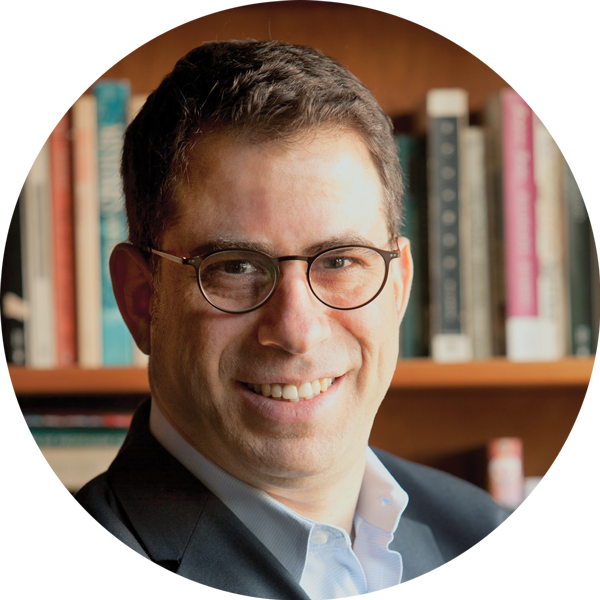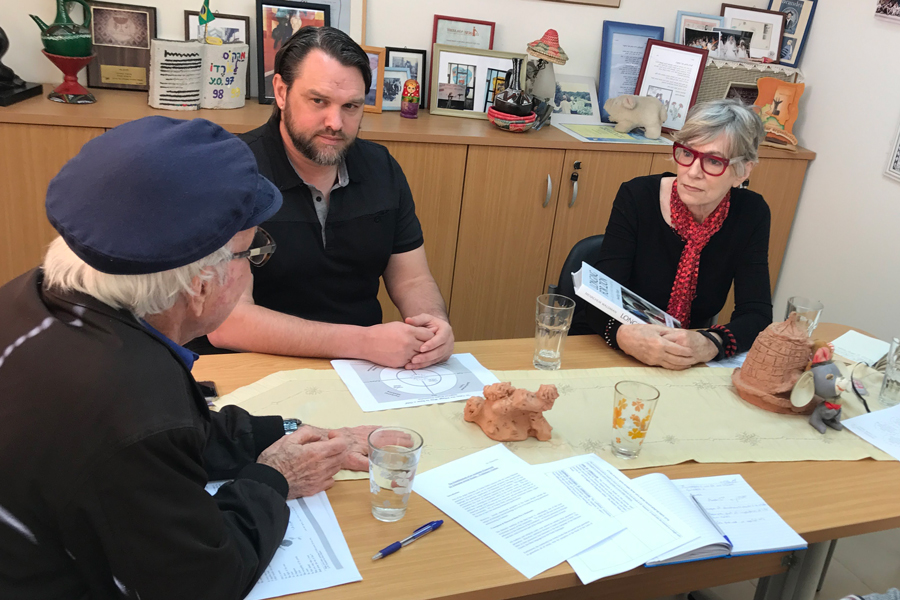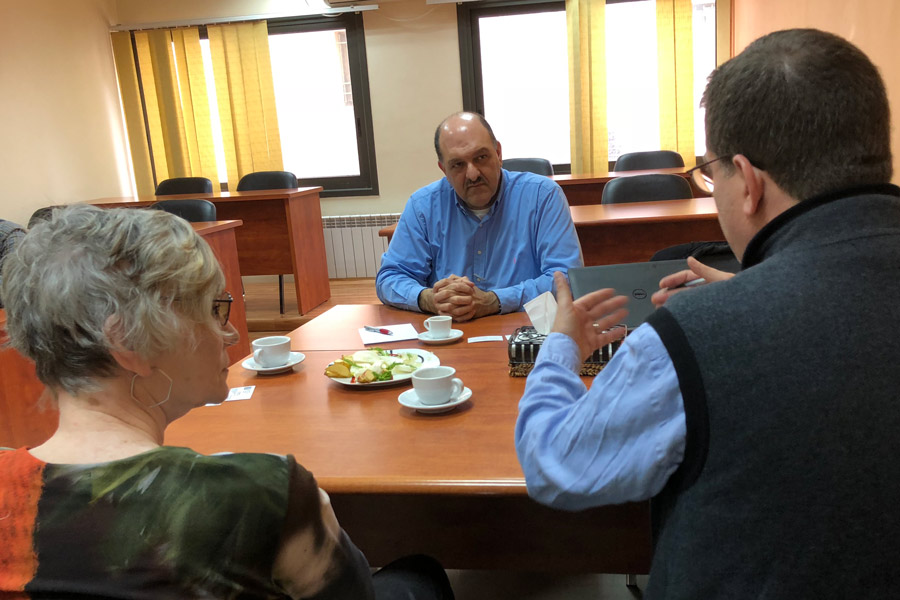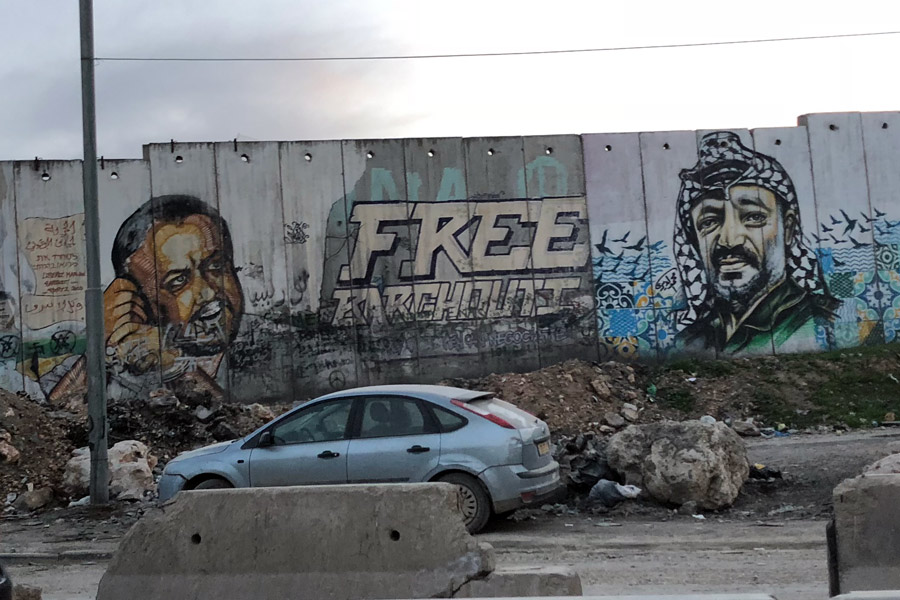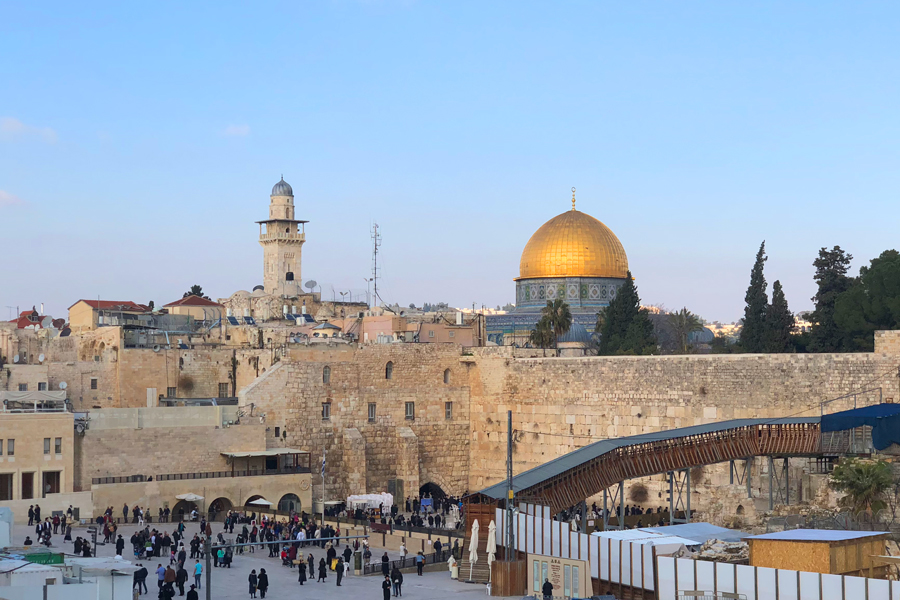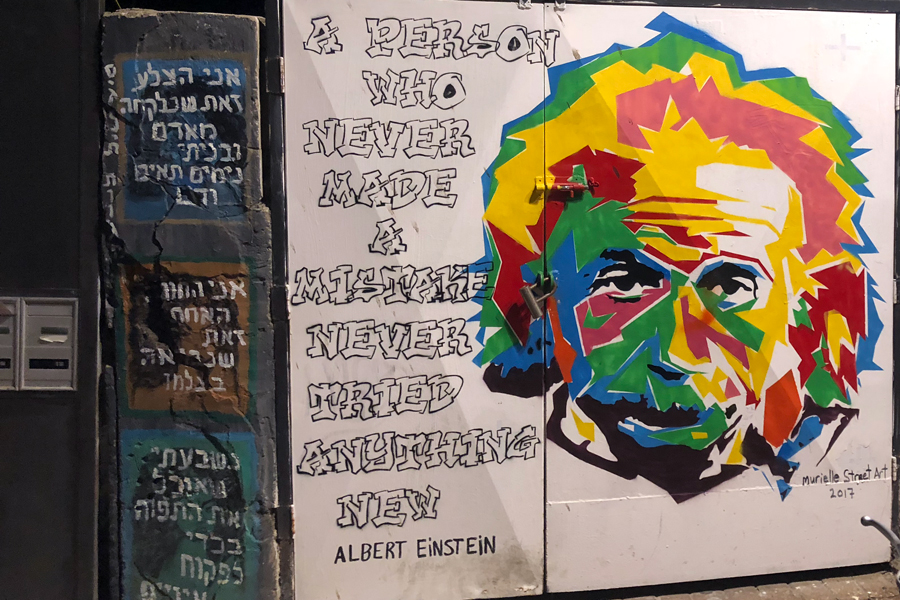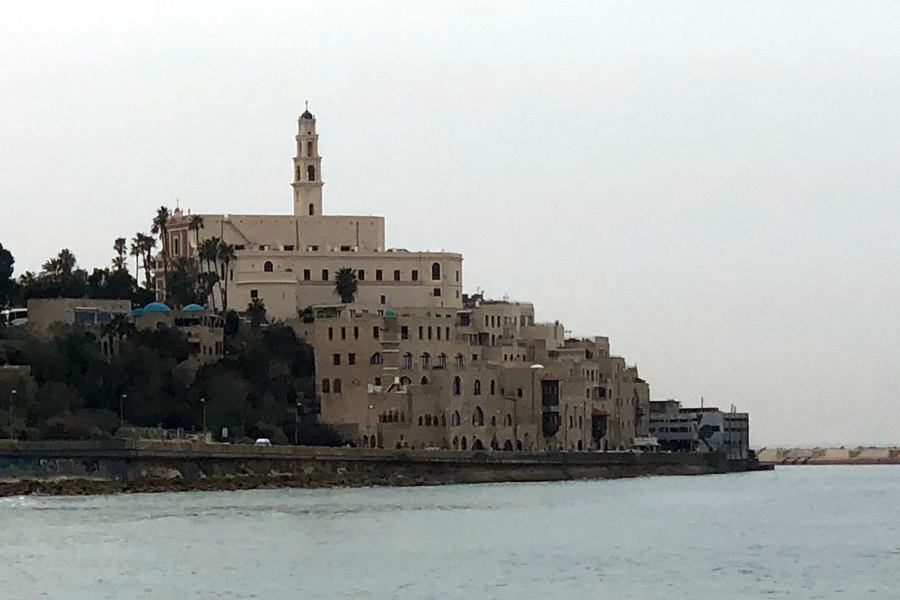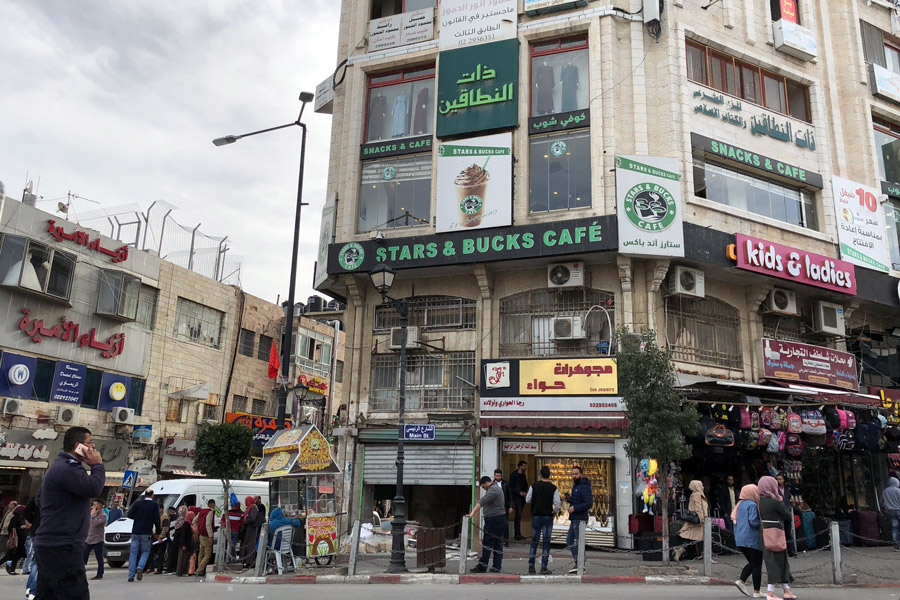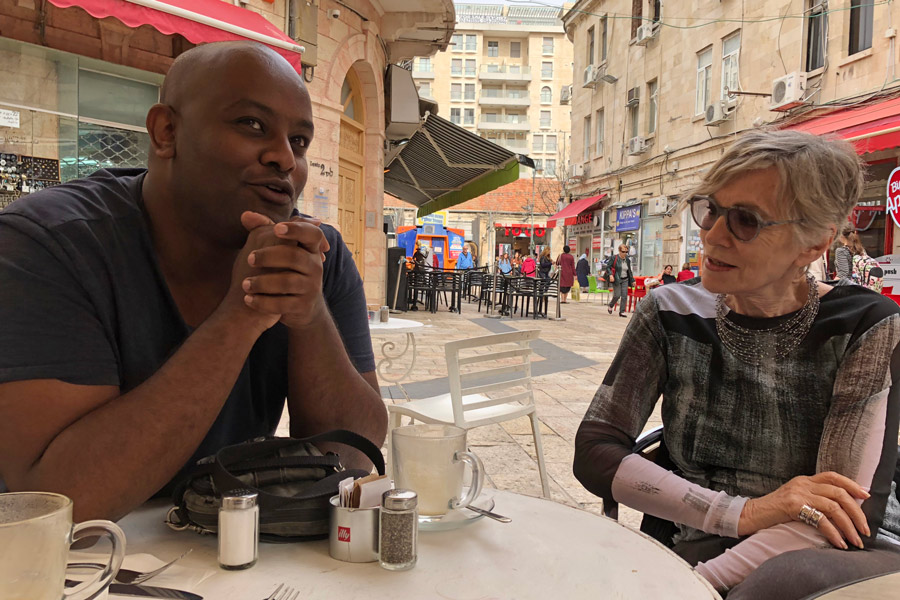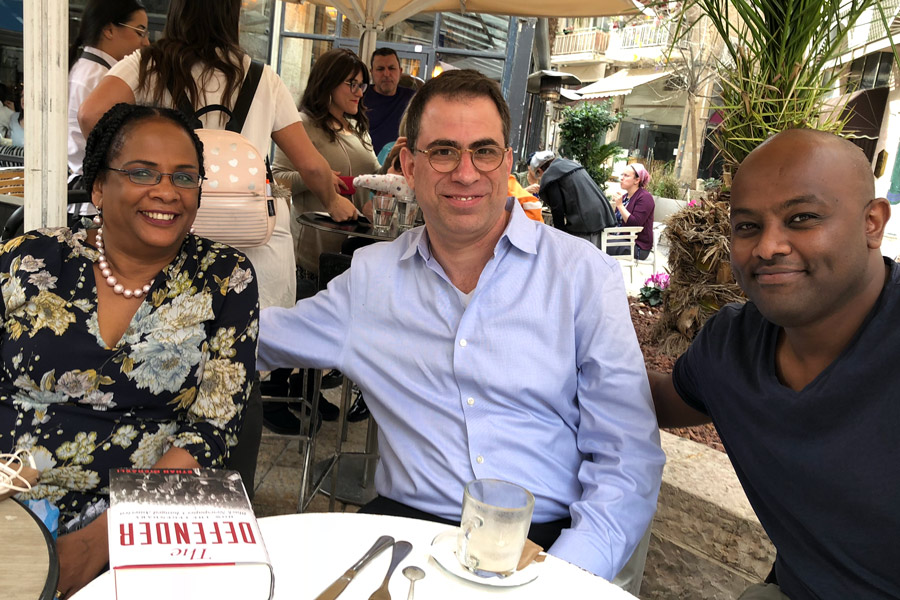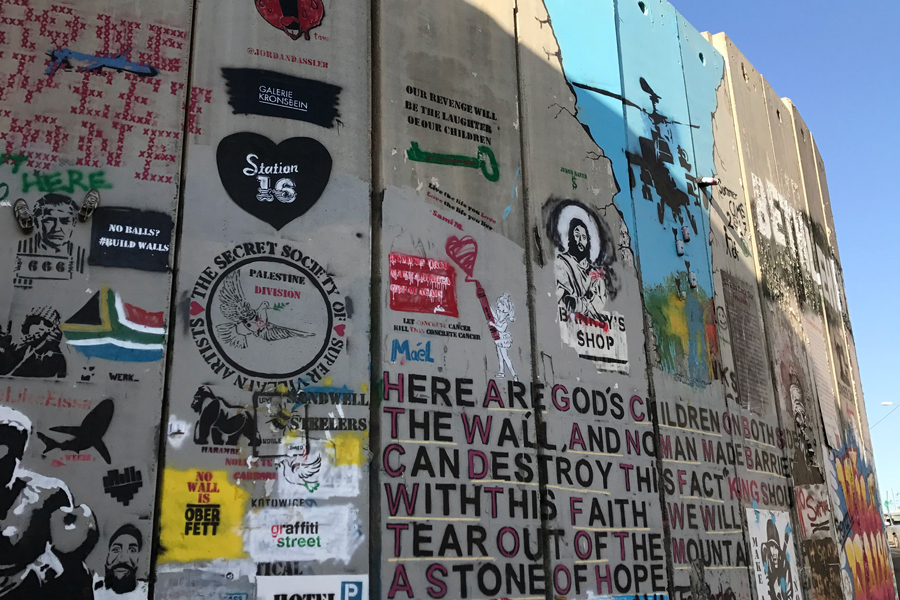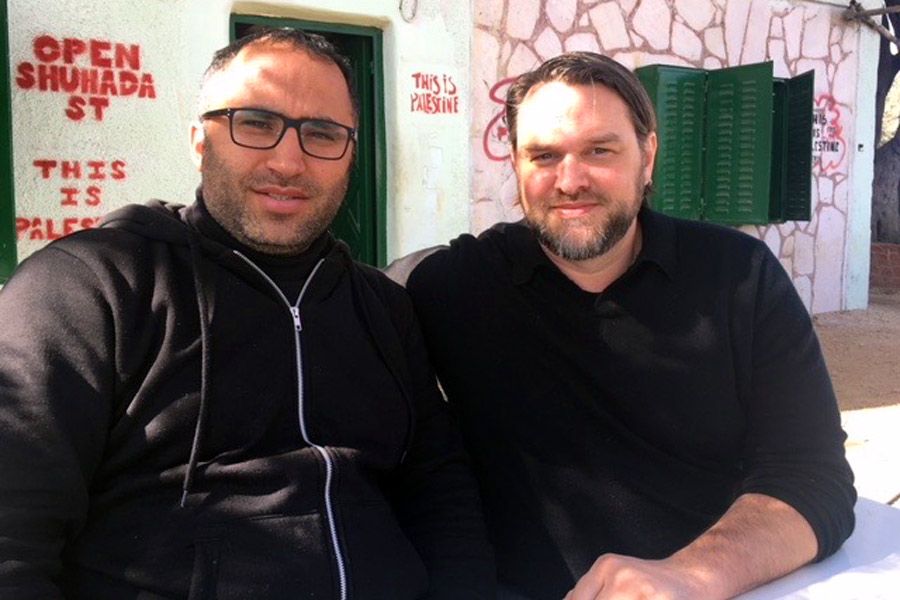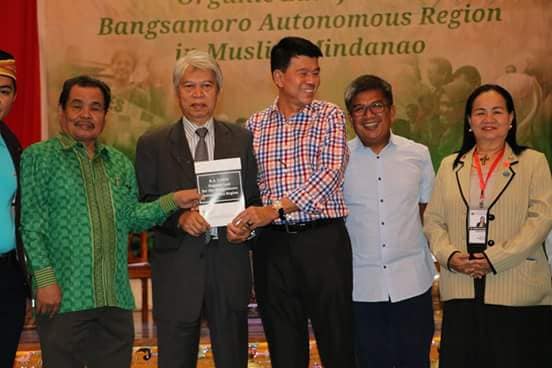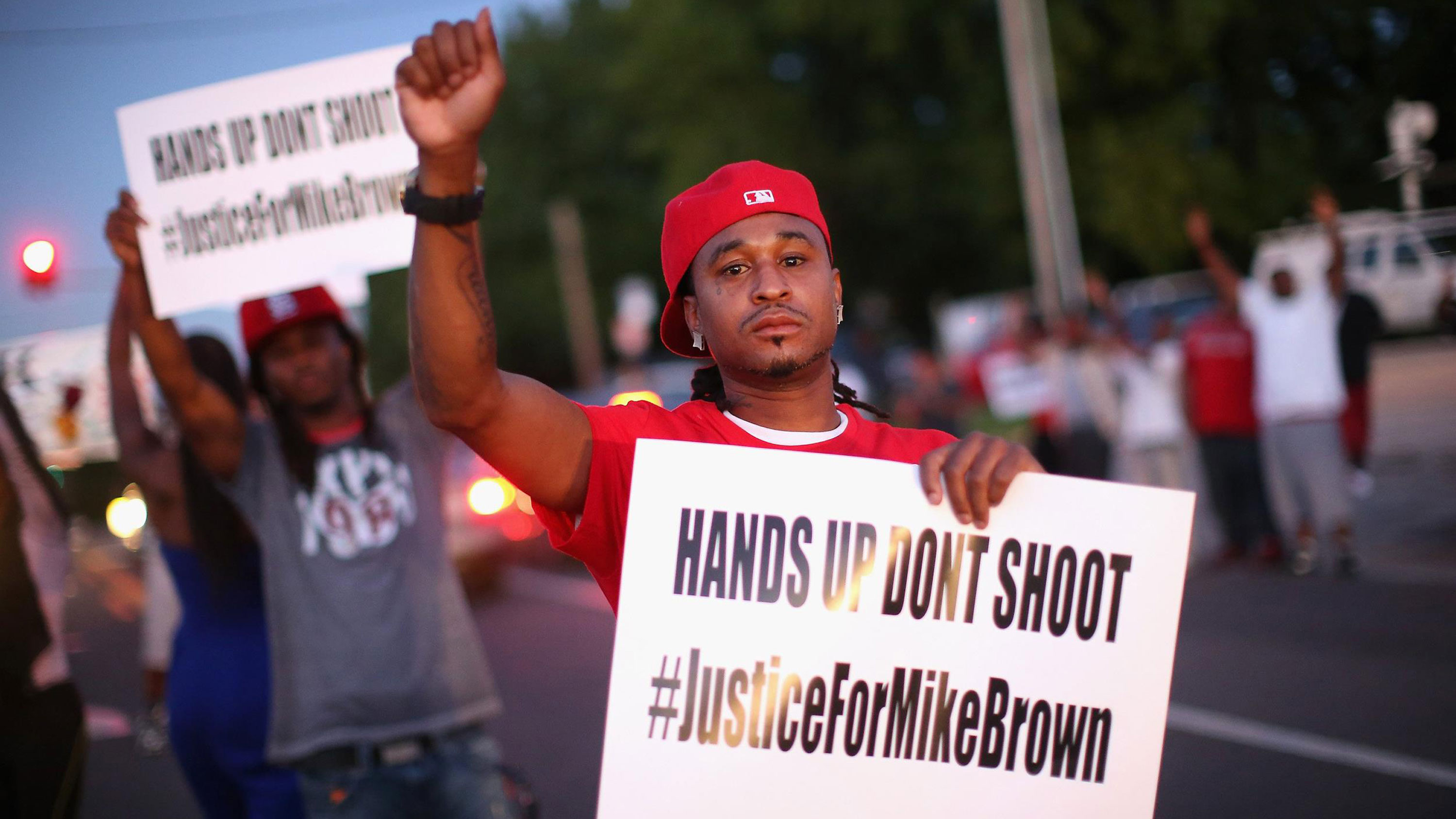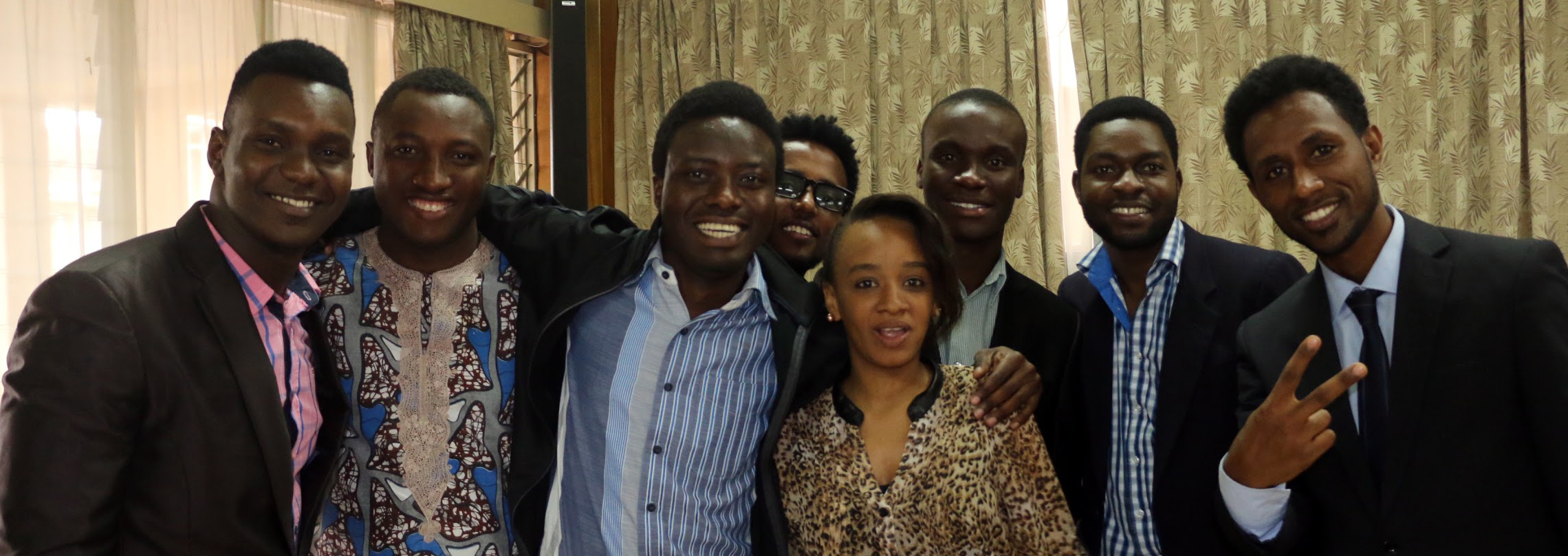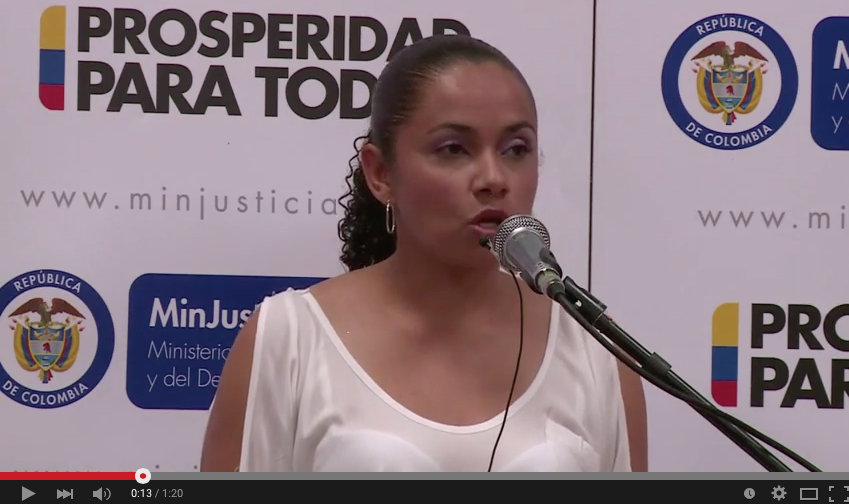Mehari Reuven is an Ethiopian Jewish teacher, writer and journalist who was incarcerated as a “prisoner of Zion” in his birth country. Released after a year during which he was tortured and witnessed the murders of other prisoners, he escaped from Ethiopia and became an international advocate for his people, playing a key role in their modern-day exodus to Israel. In his new homeland, Mehari resumed his role as a teacher, but found the Israeli students disrespectful and undisciplined, and ultimately quit to write books and produce radio programs in his native Amharic. On a radio station specially created to inform new immigrants with hour-long broadcasts in Russian, Persian, Arabic and other languages, Mehari wrote and narrated an award-winning series educating and encouraging his fellow Ethiopians to participate in Israel’s democracy and resist the discrimination they faced all too often from religious and government officials.
Tsionit Fatal Kupperwasser is a career Israeli military intelligence officer whose parents were born in Baghdad, part of a large Jewish community that had thrived in Iraq for millennia but had to flee in the wake of pogroms which targeted them after Israel’s establishment in 1948. In an effort to reconnect with her family’s severed past, she wrote a novel about her ancestors’ lives in Baghdad, which was discovered by a publisher in Iraq, translated into Arabic, and published to wide acclaim in that country: Tsionit’s Facebook page today is filled with messages in Hebrew and Arabic from her fans in two nations that are technically blood enemies.
Palestinian activist Issa Amro leads Students Against Settlements, a grassroots group of volunteers who organize nonviolent protests to demand an end to Israel’s military occupation of Palestine. Issa is based in Hebron, a Palestinian city that has an enclave of Israeli settlers protected by hundreds of soldiers, and his activities have frequently brought him to confrontations with soldiers and settlers as well as with Palestinian authorities, who are suspicious of his non-violent tactics and relationships with international groups as well as of his independence.
These were just some of the people we met this winter when I traveled through Israel and Palestine with the Goldin Institute’s founders, Chairperson Diane Goldin and Executive Director Travis Rejman. Diane and Travis have long worked with both Palestinians and Israelis previously and wanted to check in with their old friends and colleagues, build new relationships and take a snapshot of a region which is much in the news. I was happy to help organize the trip, both in my capacity as the Goldin Institute’s Senior Advisor and because I happen to be writing my next book about Israel, to be titled “Twelve Tribes: Promise and Peril in the New Israel.”
The title refers to the Twelve Tribes of ancient times, a querulous confederation who demanded that the Lord send them a monarch to rule over them, according to the Tanakh. But I won’t be examining modern equivalents to the ancient tribes. Rather, my book will explore how modern tribalism within Israel defines the conflict with the Palestinians, with consequences that radiate throughout the Middle East and beyond.
Israel today is divided between religious and secular, and between those Jews of European background and those whose ancestors were from the Middle East and North Africa, as well as between Jews and Muslims, both those who are citizens of Israel and those under military occupation in Jerusalem, the West Bank and Gaza.
I was born in the United States, but most of my family lives in Israel and I’ve traveled there many times, including several trips specifically for this book. On our journey, Diane, Travis and I traversed the country by bus and car, from hip downtown Tel Aviv to the labyrinthine market in Jerusalem’s Old City, from the mountains overlooking the Sea of Galilee to the desert around the Dead Sea. Having worked in war zones in Uganda, Colombia and the Philippines, they felt resonance in Israel and Palestine with other global hotspots, in the Israeli military checkpoint to enter the Palestinian capital of Ramallah, the high concrete wall that separates Bethlehem from Jerusalem, and the young Palestinian men in black t-shirts throwing rocks at Israeli soldiers as we drove past.
The people we met with – Mehari, Tsionit, Issa and dozens of others – did indeed help us get a picture of Israel and Palestine at this particular moment in time. But more than that, they helped us understand exactly what modern tribalism is, how it is affecting every nation around the world, and, most importantly, what can be done to reach out across the gap and embrace putative enemies.
